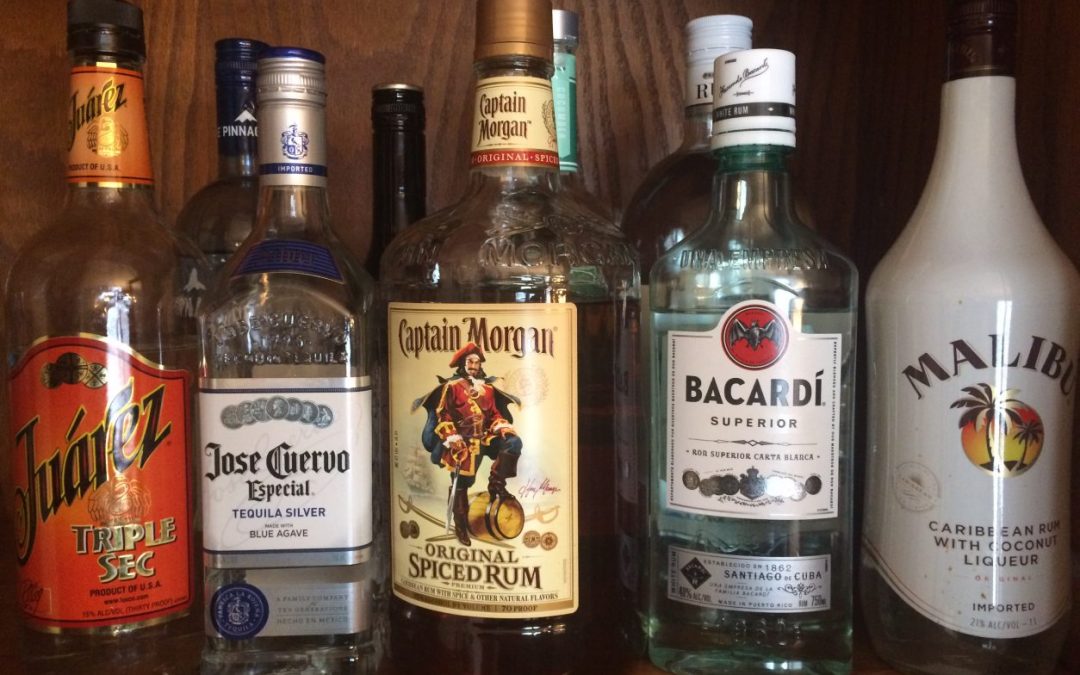Both times I saw my dad get physically violent with my mom were when he was drunk. Many in the domestic abuse community say that alcohol does not cause domestic violence, and I agree. If it did, everyone who drank would commit violence against his or her partner. Clearly that’s not the case. The same applies for recreational, mind-altering drugs. However, ignoring the strong link between substance use and domestic violence is also a mistake because we’d miss some lessons and solutions for stopping it.
Alcohol does not cause domestic violence, but ignoring the link misses lessons and solutions.
A number of studies have established the relationship between the two. One study showed that 70% of the aggressors were under the influence at the time of the event. Another study showed 92% of domestic violence incidents occurred when the offending party used drugs or alcohol that day. Still another found that severe intimate partner violence (IPV) was 11 times more likely on drinking days vs. non-drinking days. Based on the accounts I heard in my batterers intervention program (BIP) and experience with my parents, none of these statistics surprise me.
Why is the connection between consuming alcohol or drugs and domestic violence so strong? There are three pretty good theories, validated by researchers, and all of which make sense.
Use leads to conflict leads to domestic violence
First, using and especially abusing alcohol and drugs can be a major source of conflict in a relationship. Since consumption is a common source of arguments, and most domestic violence occurs during times of conflict, it’s easy to see how one can lead to the other. Note I didn’t say cause the other (as if there was nothing that person could have done to stop it) because we are all responsible for how we respond to conflict.
Consumption is a source of arguments, and most domestic violence occurs during conflict.
This was certainly true for my parents, who argued regularly about my dad’s addiction to booze. Both of the incidents I mentioned above started when my mother confronted my father about his drinking. While her timing was not likely to get a good response, her criticism was legitimate. His reaction was not. No argument, justified or not, ill timed or not, gives us any reason for becoming violent. There are no exceptions.
Intoxication facilitates domestic violence
The second theory says intoxication facilitates violence. Alcohol and other drugs have the effect of impairing judgment and lowering inhibitions. People under the influence do a lot of things they wouldn’t do sober. It’s not unusual to see drunk people become hostile and aggressive, so it should be no surprise that someone who is high might argue with and even strike their nearby partner.
“I was drunk” is not an excuse for committing an act of domestic violence.
However, “I was drunk” is not an excuse for committing an act of domestic violence. Just like with drunk driving, being under the influence can lead us into doing harm, but we are still responsible. That responsibility starts before we reach a state of impairment. Not all people who are drunk or high commit acts of intimate partner violence, so bad judgment from drinking or drugging is not a complete answer. Dig deeper.
Comorbidity
The third theory, comorbidity, describes two conditions that occur together and that have the same root cause. Much like the flu virus can cause a fever and vomiting, the things that cause substance abuse also cause domestic abuse. The root of both is often emotional hurt from past traumas, usually from our childhood. Verbal, emotional, or physical abuse, abandonment, excessive control from a parent, and others are known sources of emotional wounds.
Things that cause substance abuse also cause domestic abuse.
In the case of substance abuse, we are trying to numb the hurt so we don’t have to feel it now. In the case of abusive behavior, we try to stop hurt we are experiencing in our current circumstances by controlling others that we think are responsible for it. Neither strategy works. The effects of our misguided efforts only make matters worse.
Substance abuse and stopping domestic violence
Talking about studies and data to those of us who have caused harm in a relationship is worthless unless there are things we can learn and then apply to help us change our behavior. In this case, there is a lot to discover and do.
Given the strong association between consuming alcohol or drugs and domestic violence, avoiding those substances should be at the top of the list for a person who wants to stop hurting the one they love. Why create unnecessary conflict? Why allow yourself into a state where your judgment is impaired, you are more likely to wrongly perceive your partner’s actions, and then react with words or violence that will damage the relationship? Some things aren’t worth risking.
Avoiding those substances should be at the top of the list for a person who wants to stop hurting the ones he loves.
If you are having trouble stopping, get help from counseling, a treatment center, or a group like AA or Celebrate Recovery. Like I mentioned above, don’t assume getting sober will be the ticket to stopping abusive behavior. Often it’s not, but it will help, and it will be a great life problem to solve.
Dig deeper and discover hurts that drive bad behavior.
Alcohol and drugs don’t cause domestic violence—they are two outcomes from a common cause. If consumption preceded your hurtful actions, it’s worth looking deeper into it what your drinking and violence might have in common. The comorbidity theory should motivate you to dig deeper into discovering your own particular hurts that might drive bad behavior—whether it’s abusing substances or controlling your partner—so that you can stop hurting them and yourself. An investment of time and effort now will have great benefits for the rest of your life.


Recent Comments